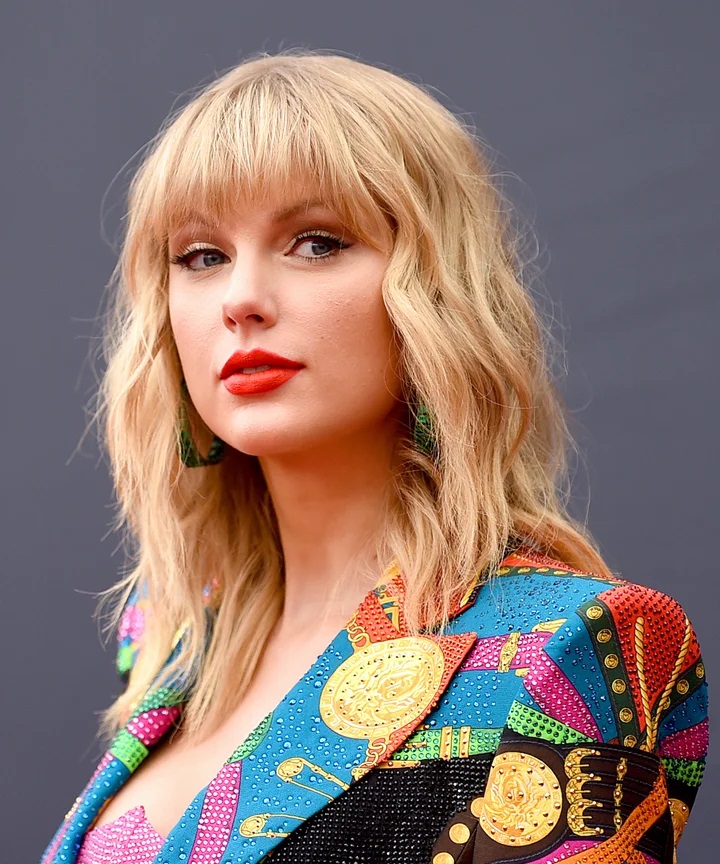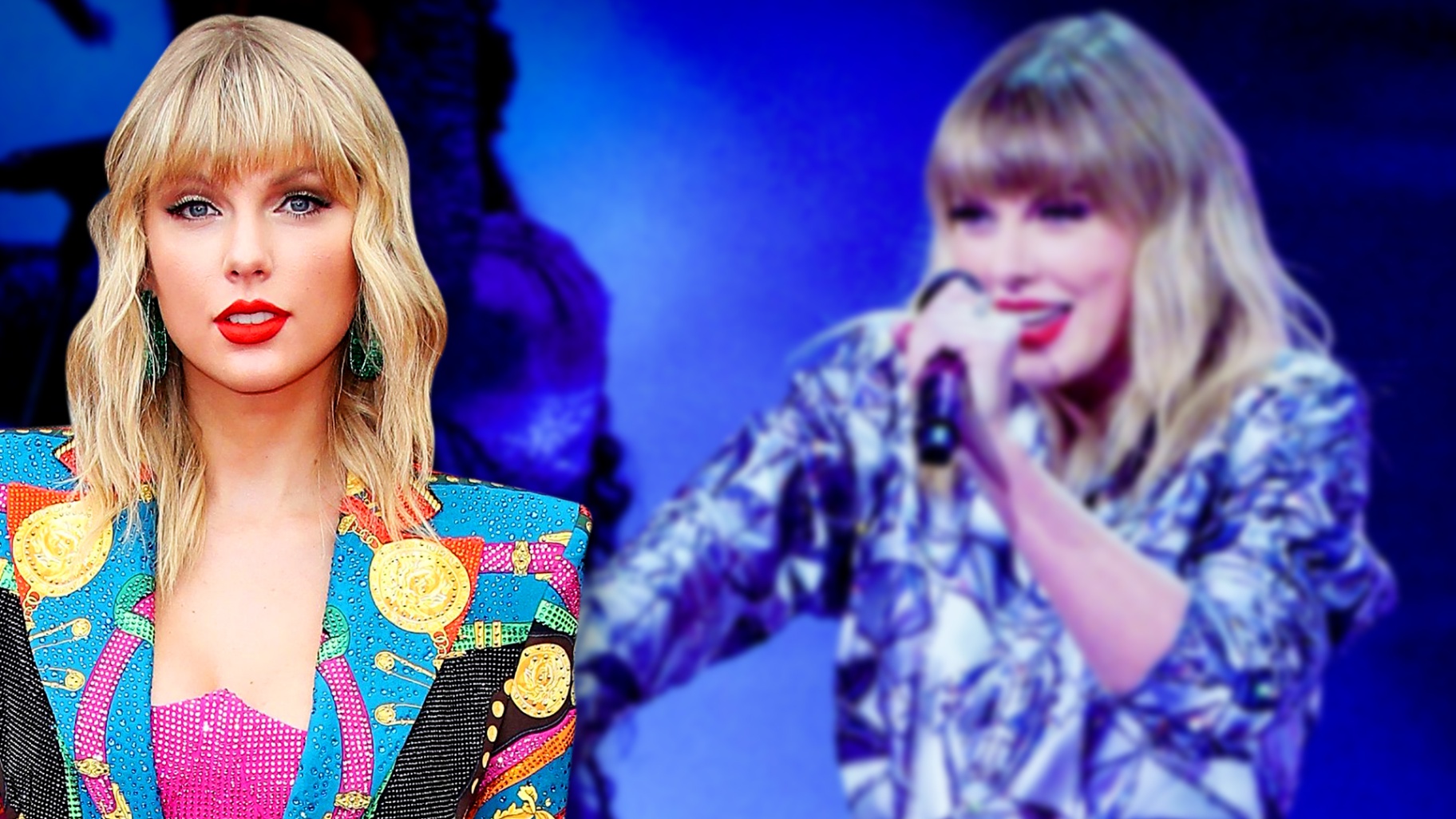In an explosive statement, conservative commentator Megyn Kelly has once аgаіn thrust herself into the center of controversy-this time targeting one of the biggest pop stars in the world, Taylor Swift. Kelly’s call for a widespread boycott of Swift comes on the heels of the singer’s appearance at a high-profile charity event for Gaza, a move that has sparked both support and outrage.

Taylor Swift’s participation in the charity event for Gaza was initially intended to promote humanitarian relief for the victims of the ongoing conflict in the region. Swift, known for her philanthropic efforts and advocacy for human rights, took the stage alongside other prominent figures to raise awareness and funds for civilians affected by the crisis. Her attendance was seen by many as an effort to shed light оn a deeply complex and divisive issue, but for others, including Megyn Kelly, it was a step too far.
Shortly after Swift’s appearance, Kelly took to her popular podcast to voice her discontent. “Taylor Swift is pandering to a dangerous narrative,” Kelly proclaimed. “This is not about charity. This is about aligning yourself with causes that are anti-Israel, and frankly, anti-Amеrісап.”
Kelly, who has built a reputation for her hard-hitting critiques of liberal celebrities, didn’t hold back, urging her listeners to stop supporting Swift’s music and brand. “Swift has always been savvy in her career choices, but this time she’s made a serious miscalculation. Supporting causes like this is reckless, and we need to take a stand,” Kelly said, rallying her audience to boycott the pop star.

The backlash was swift, πο ρυπ intended. Swift’s fanbase, known as the “Swifties,” immediately jumped to her defense, flooding social media with support for their idol. Many argued that the singer’s involvement in the event was purely humanitarian, and that Kelly’s accusations were baseless. “Taylor has always supported peace and equality. She’s not taking sides, she’s supporting human life,” one fan tweeted.
On the other side, Kelly’s supporters praised her for speaking out against what they see as a troubling trend among celebrities who, in their view, increasingly align with controversial political causes. Conservative voices joined Kelly in criticizing Swift’s decision, with some calling it a betrayal of American values.
Kelly’s boycott campaign is more than just a celebrity feud-it taps into a larger cultural war that has increasingly divided public opinion. The Gaza conflict, with its deeply entrenched political and moral complexities, has long been a flashpoint for international debate. By stepping into this arena, Swift finds herself caught in the crossfire of one of the most heated geopolitical issues of our time.
For Kelly, this isn’t just about Swift. “This is a pattern,” Kelly warned. “Celebrities are using their platforms to push agendas, and it’s dangerous. We have to draw a lіnе.”
As the controversy continues to escalate, the question remains: how will Taylor Swift respond? Thus far, the singer has remained silent, allowing her fans and critics to battle it out online. However, with Kelly’s boycott campaign gaining traction, the pressure is mounting. Will Swift make a public statement to clarify her stance, or will she continue to let her actions speak for themselves?
In the meantime, Swift’s latest album continues to top charts, even as the debate over her political choices rages on. Whether or not the boycott will have a lasting impact on her career remains to be seen, but one thing is clear: the intersection of celebrity and politics has never been more fraught, and Taylor Swift is now at the heart of it.
As both Megyn Kelly and Taylor Swift wield significant influence, their clash highlights the growing power celebrities hold in shaping political and social discourse. While some view this as a positive force for change, others, like Kelly, see it as a dangerous trend.
In the end, this debate goes far beyond a single event or a single pop star-it speaks to the broader issue of how we, as a society, navigate the complex relationship between fame, activism, and responsibility.
Will Swift weather this storm, or will Kelly’s call for a boycott mark a turning point in how celebrities engage with global causes? Only time will tell, but for now, the world is watching, and the battle lines have been drawn.
News
Billionaire Elon Musk confirmed that he has 12 children with 3 women, he must start redistributing inheritance when the 12th child is born
Billionaire Elon Musk has officially confirmed that he has had a third child with his female subordinate Shivon Zilis. Currently, Musk has a total of 12 children with 3 wоmen. In an interview with Page Six (USA), Elon Musk (52…
Every time he wins an award, Siya Kolisi gives his wife an expensive supercar to add to his car collection
Following his relocation to France, Springboks captain Siya Kolisi has added a stylish new set of wheels to his collection. Feast your eyes on his latest vehicle! Kolisi was pleasantly surprised with a brand-new Range Rover, a generous gift presented…
Justin Baldoni’s Man Enough Co-Host Liz Plank Leaves Podcast After Blake Lively Claims: ‘We All Deserve Better’ (Exclusive)
On Dec. 20 Lively accused Baldoni of sexual harassment on set and a retaliatory public smear campaign in a legal filing Justin Baldoni, Blake Lively and Liz Plank. Journalist and author Liz Plank co-hosts the podcast The Man Enough with actor-filmmaker…
Heisman Winner Travis Hunter Deactivates Instagram Account as Hatred Toward Fiancée Leanna Lenee Continues
The controversy initially began as Hunter received the Heisman trophy and many fans called out Lenee’s behavior in videos that circulated online Travis Hunter Leanna Lanee. Amid the continued vitriol going around online about his fiancée Leanna Lenee, 2024 Heisman…
Tallulah Willis Reveals She’s Engaged to Musician Justin Acee
The 30-year-old daughter of Demi Moore and Bruce Willis announced her engagement on Monday, Dec. 23 Tallulah Willis announces engagement to Justin Acee. Tallulah Willis is ready to walk down the aisle! “Everyday @justinacee,” she wrote next to the social media post…
Blake Lively’s A Simple Favor 2 Costar Michele Morrone Says He ‘Felt Her Pain’ Over Justin Baldoni’s Alleged Behavior
Morrone filmed ‘A Simple Favor 2’ with Lively shortly after she wrapped ‘It Ends With Us’ with Baldoni Michele Morrone and his costar Blake Lively. Michele Morrone is lending his support to his costar Blake Lively. On Monday, Dec. 23,…
End of content
No more pages to load












